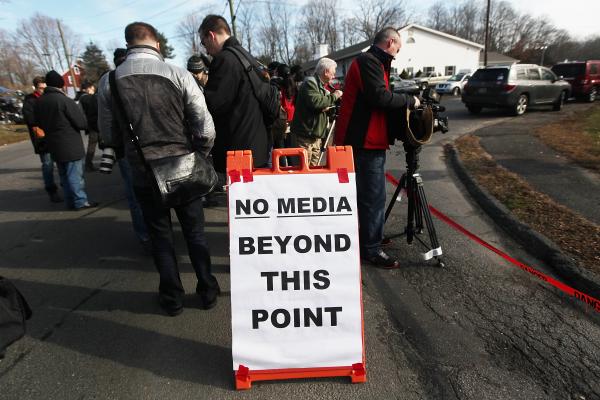In the time following our latest national tragedy in Newtown, Conn., many have wondered where God was in the midst of these horrific events. While such questions are indeed significant and deserve extended consideration (and thankfully, many have already addressed the subject), instead of wondering where God was, perhaps the time is upon us to also consider where we are.
While it is imperative to contemplate and debate the role and presence of God during such catastrophes, it is also critical to consider our collective response as a human community.
We often learn of tragic events through the lenses of news media, and of course, the various outlets possess mixed motives and results. While there is nothing inherently wrong with sharing the stories, there is fine line between seeking facts and invading privacy, and this boundary is too often crossed. In the hours immediately following the recent shootings in Connecticut, countless camera crews, photographers, and reporters crowded around devastated children and traumatized families. While some merely wished to share information and build awareness, others seemed to be more interested in ratings and profit. And so, while the debates surrounding media ethics in the aftermath of tragedy will surely continue, most would agree that even the most sensitive of camera crews, photographers, and reporters do not always create the most ideal setting for those enduring tragedy. For the sake of those who experience loss in the most heartbreaking of circumstances, we should demand something better.
While certain members of the news media are too often inconsiderate in their responses to disaster, we as a society are faced with an equally harsh and soul-searching reality. We are too often fascinated with – and even drawn to – various forms of violence. Many of the most popular television shows, movies, video games, and competitive sports are saturated with aggression, and while many debate the psychological and sociological impact of these entertainment options, few can argue that – on a national scale – such preferences are indeed evident. And so, within an enormous entertainment culture that frequently blurs the borders between fiction and reality, one can argue that news coverage surrounding tragedy simply provides what the general public so deeply and dangerously desires. The troubling result is that too many watch the news following a tragedy not merely to be informed, but simply to watch.
So instead of gawking at those affected by the deep horrors of tragedy, a more faithful response is grieving with them.
Whereas gawking is defined as “to gape or stare stupidly,” to grieve is an experience of “deep and poignant distress caused by or as if by bereavement." And so, our response to tragedy is not simply to stare at our television or computer screens, but rather, we should be moved to grieve alongside those who experienced (and continue to suffer) the awful pains of disaster. Instead of sitting and waiting for the latest breaking news, a more appropriate reaction is to empathize, seek healing, and most importantly, engage in sustained action to ensure future prevention. To gawk at is to watch the tragedy from a distance, but to grieve with is to compassionately participate within the aftermath of the tragedy.
A tragedy should grip tightly onto our national attention, and when it does, we must choose whether to react as spectators or participators. Instead of safely watching a tragedy take place, the time is upon us to participate deeply within its aftereffects, and in doing so, take the risk of grieving deeply with those who mourn and passionately pushing for sensible legislation that honors the dead and promotes life in all its fullness.
As a society we recognize that tragedy is not only the violent act itself, but it is tragic when we do not fully come to the aid of those deeply hurt by such violence, and it is tragic when we fail to do all that we possibly can to ensure that such dreadful events will never happen again. The time is upon us to step off the sidelines, share in the suffering of those who lost loved ones, and seek solidarity with all who seek a better future. Enough is enough. The time is now.
Brian E. Konkol is an ordained pastor of the Evangelical Lutheran Church in America (ELCA), serves as Co-Pastor of Lake Edge Lutheran Church (Madison, WI), and is a PhD candidate in Theology & Development with the University of KwaZulu-Natal (South Africa).
Got something to say about what you're reading? We value your feedback!
